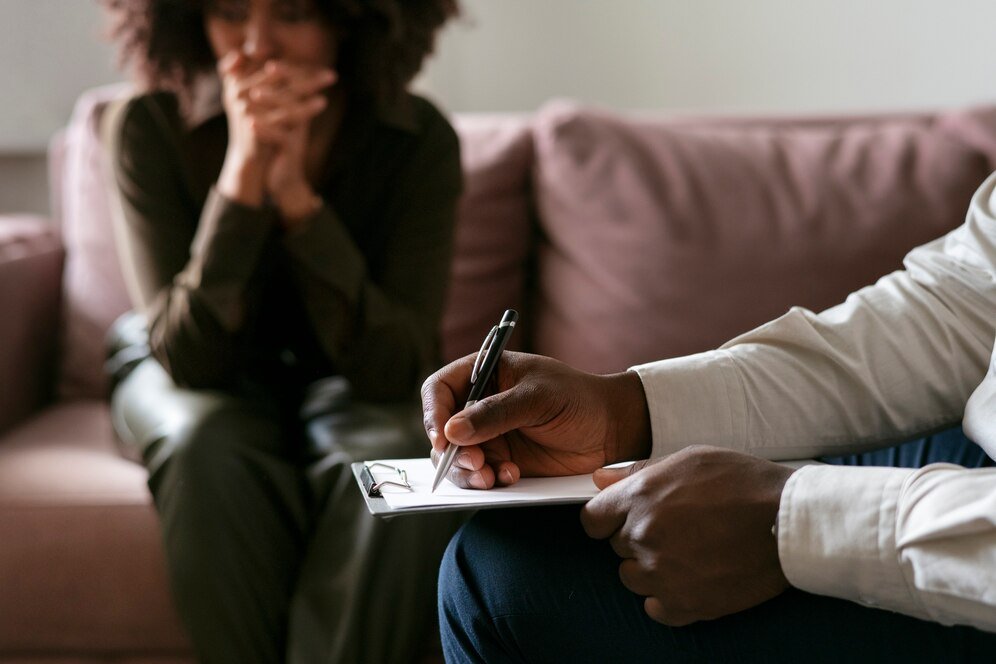CBD and Therapy: Can it Enhance the Effectiveness of Anxiety Treatment?
The use of CBD (cannabidiol) in mental health treatment has gained considerable attention over recent years, especially as a potential complementary therapy for…
Table of contents
The use of CBD (cannabidiol) in mental health treatment has gained considerable attention over recent years, especially as a potential complementary therapy for anxiety. Integrating CBD with traditional therapy methods has sparked widespread interest, with many wondering if CBD and Therapy can work together to enhance treatment outcomes for anxiety. In this article, we’ll take an in-depth look at how CBD interacts with the body’s endocannabinoid system, its potential benefits when paired with therapeutic practices, and the existing research on the topic. We’ll also cover practical advice, answer FAQs, and provide guidance on how to safely incorporate CBD into your mental health regimen.
Understanding CBD and Its Role in Anxiety Treatment
CBD is one of the many naturally occurring compounds found in cannabis and hemp plants. Unlike THC, CBD is non-psychoactive, meaning it won’t cause any intoxicating effects. It interacts with the body’s endocannabinoid system (ECS) which plays a significant role in regulating mood, stress, sleep, and overall homeostasis. This interaction is believed to help alleviate anxiety and support a more balanced emotional state.
When discussing CBD and Therapy, it’s important to consider that CBD is not a standalone treatment for anxiety. Instead, it may be used to complement therapy (such as cognitive behavioral therapy, mindfulness practices, or counseling) by reducing the physiological symptoms of anxiety that can inhibit therapeutic progress.
How CBD May Enhance Anxiety Therapy
1. Reduction in Physiological Symptoms
One of the major benefits of CBD for individuals suffering from anxiety is its potential to reduce physical symptoms such as rapid heartbeat, sweating, and muscle tension. By calming the body’s stress response, CBD can create a better environment for therapeutic interventions to take root.
2. Enhanced Emotional Regulation
CBD may help stabilize mood by modulating neurotransmitter activity, particularly through its interaction with serotonin receptors. This can lead to improved emotional regulation during therapy sessions, making it easier to process and overcome anxiety-inducing thoughts.
3. Improved Sleep and Recovery
Sleep quality is vital for mental health. CBD’s relaxing properties may help improve sleep patterns, ensuring that clients are well-rested and better prepared to face the challenges of therapy and daily life.
4. Increased Openness to Change
By alleviating some of the physical discomfort and mental clutter associated with anxiety, CBD may allow individuals to engage more fully in therapy. A calmer state of mind can foster an increased openness to adopting new coping strategies and changing negative thought patterns.
5. Reduced Dependency on Traditional Medications
For some individuals, CBD offers a natural alternative or complementary option to traditional anti-anxiety medications, which may have side effects. Integrating CBD and Therapy could potentially reduce dependency on medications while still managing symptoms effectively.
Practical Tips for Integrating CBD with Therapy
If you’re considering adding CBD to your anxiety treatment plan, here are some practical steps to ensure safe and effective use:
Start with a Low Dose
- Begin with a low dose (e.g., 5-10 mg) and gradually increase if needed.
- Monitor how your body and mind respond over time.
Consult a Healthcare Professional
- Always speak with a therapist or medical provider before combining CBD with therapy, especially if you’re already taking prescription medications.
- They can help you determine the right dosage and identify any potential interactions.
Choose High-Quality Products
- Look for CBD products that are third-party tested, ensuring they’re free from contaminants and contain the advertised amount of CBD.
- Decide whether you’d prefer full-spectrum, broad-spectrum, or CBD isolate, based on your sensitivity to THC.
Incorporate CBD into Your Pre-Therapy Routine
- Consider taking CBD about 30-60 minutes before a therapy session to reduce anxiety and increase relaxation.
- Pair CBD with mindfulness exercises or deep breathing techniques to amplify its calming effects.
Keep a Journal
- Track your CBD usage along with any changes in your anxiety levels, mood, and overall mental state.
- This documentation can help you and your healthcare provider determine the optimal dose and usage pattern.
Research and Perspectives
Although anecdotal evidence and preliminary studies suggest that CBD may help alleviate anxiety symptoms and improve therapy outcomes, more comprehensive research is needed to confirm these benefits over the long term. Current research focuses on:
- How CBD interacts with serotonin receptors.
- The impact of CBD on physiological symptoms of stress.
- Its potential role in enhancing neural plasticity and emotional resilience.
Despite the need for further research, many therapists and patients have started exploring CBD and Therapy as a promising complementary approach to managing anxiety.
5 Frequently Asked Questions (FAQ)

1. Can CBD be used alongside traditional anxiety therapies?
Yes, CBD is increasingly being used to complement traditional therapies like cognitive behavioral therapy, mindfulness, and counseling. It may help reduce the physical symptoms of anxiety, thereby allowing patients to engage more fully in therapy.
2. How does CBD interact with serotonin receptors to help with anxiety?
CBD is believed to interact with serotonin receptors (such as 5-HT1A) in the brain, which can help regulate mood and reduce anxiety. This interaction may contribute to a more balanced emotional state during therapy sessions.
3. Is there a specific dosage of CBD recommended for anxiety?
Dosage varies by individual, but many experts suggest starting with 5-10 mg per day and gradually increasing until you achieve the desired effects. It’s important to consult with a healthcare professional to determine the appropriate dose for your needs.
4. Are there any side effects of using CBD for anxiety?
CBD is generally well-tolerated, but some users may experience minor side effects such as dry mouth, dizziness, or changes in appetite. These side effects are usually mild and can often be managed by adjusting the dose.
Conclusion
Integrating CBD into your anxiety treatment can be a promising addition to your wellness strategy, helping you improve focus, manage anxiety, and engage more effectively in therapy. While more research is needed to fully understand the long-term benefits and optimal protocols, many individuals have found relief through the combination of CBD and Therapy.
By starting with a low dose, choosing high-quality products, and consulting with professionals, you can harness the potential benefits of CBD while minimizing risks. As science and acceptance of CBD continue to evolve, its role in anxiety management is poised to grow, offering a natural complement to traditional therapeutic practices.







